Search
Remove Ads
Advertisement
Search Results
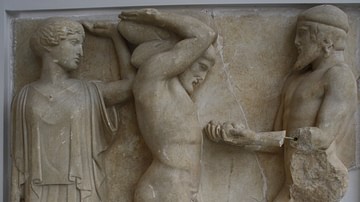
Definition
Atlas - The Greek Titan Who Held up the World
In Greek mythology, the Titan Atlas was responsible for bearing the weight of the heavens on his shoulders, a burden given to him as punishment by Zeus. Father of many stars and a protagonist in one of Hercules' famous labours, Atlas was...
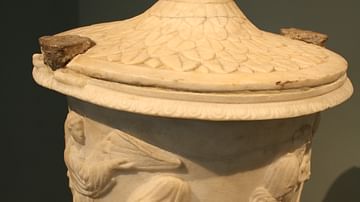
Article
The Eleusinian Mysteries: The Rites of Demeter
The Rites of Eleusis, or the Eleusinian Mysteries, were the secret rituals of the mystery school of Eleusis and were observed regularly from c. 1600 BCE - 392 CE. Exactly what this mystic ritual was no one knows; but why the ancient Greeks...
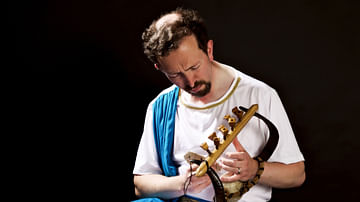
Interview
Interview with Michael Levy
Join World History Encyclopedia as they talk to Michael Levy, a prolific composer of the ancient lyre all about his inspiration and knowledge of the instrument. If you want to hear Michael perform, be sure to check out our video interview...

Definition
Ancient Greek Music
Music (or mousike) was an integral part of life in the ancient Greek world, and the term covered not only music but also dance, lyrics, and the performance of poetry. A wide range of instruments was used to perform music which was played...
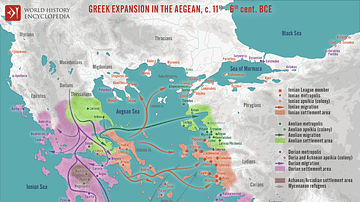
Definition
Aegean
The Aegean Sea lies between the coast of Greece and Asia Minor (modern-day Turkey). It contains over 2,000 islands which were settled by the ancient Greeks; the largest among them being Crete (Kriti) and the best known and most often photographed...
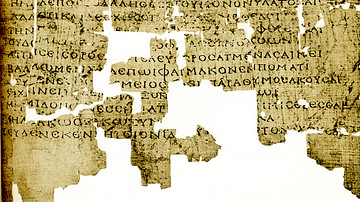
Definition
Callimachus of Cyrene
Callimachus of Cyrene (l. c. 310-c. 240 BCE) was a poet and scholar associated with the Library of Alexandria and best known for his Pinakes ("Tablets"), a bibliographic catalog of Greek literature, his poetry, and his literary aesthetic...
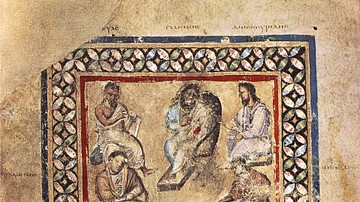
Definition
Galen
Galen (129-216 CE) was a Greek physician, author, and philosopher, working in Rome, who influenced both medical theory and practice until the middle of the 17th century CE. Owning a large, personal library, he wrote hundreds of medical treatises...
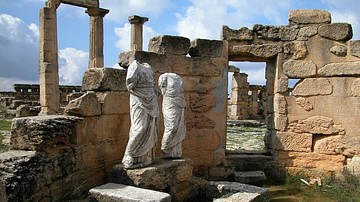
Definition
Cyrenaics
The Cyrenaics were a philosophical school of thought founded c. 4th century BCE by Aristippus of Cyrene (l. c. 435-356 BCE) who taught that sensual pleasure was the highest good and only worthwhile pursuit in life. Known as the first hedonistic...
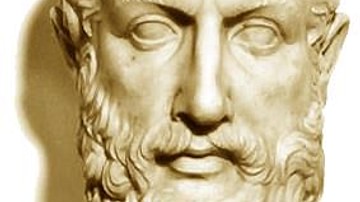
Article
Parmenides & the Path of Truth
Parmenides (l. c. 485 BCE) lived and taught in Elea, a Greek colony in southern Italy and is known as the founder of the Monist School (though it may have been founded by Xenophanes of Colophon, l. c. 570-478 BCE) which claimed all of reality...
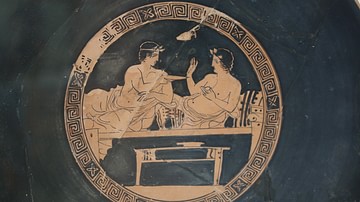
Definition
Symposium - The Drinking Party of Ancient Greece
The symposium (or symposion) was an important part of ancient Greek culture from the 7th century BCE and was a party held in a private home where Greek males gathered to drink, eat and sing together. Various topics were also discussed such...